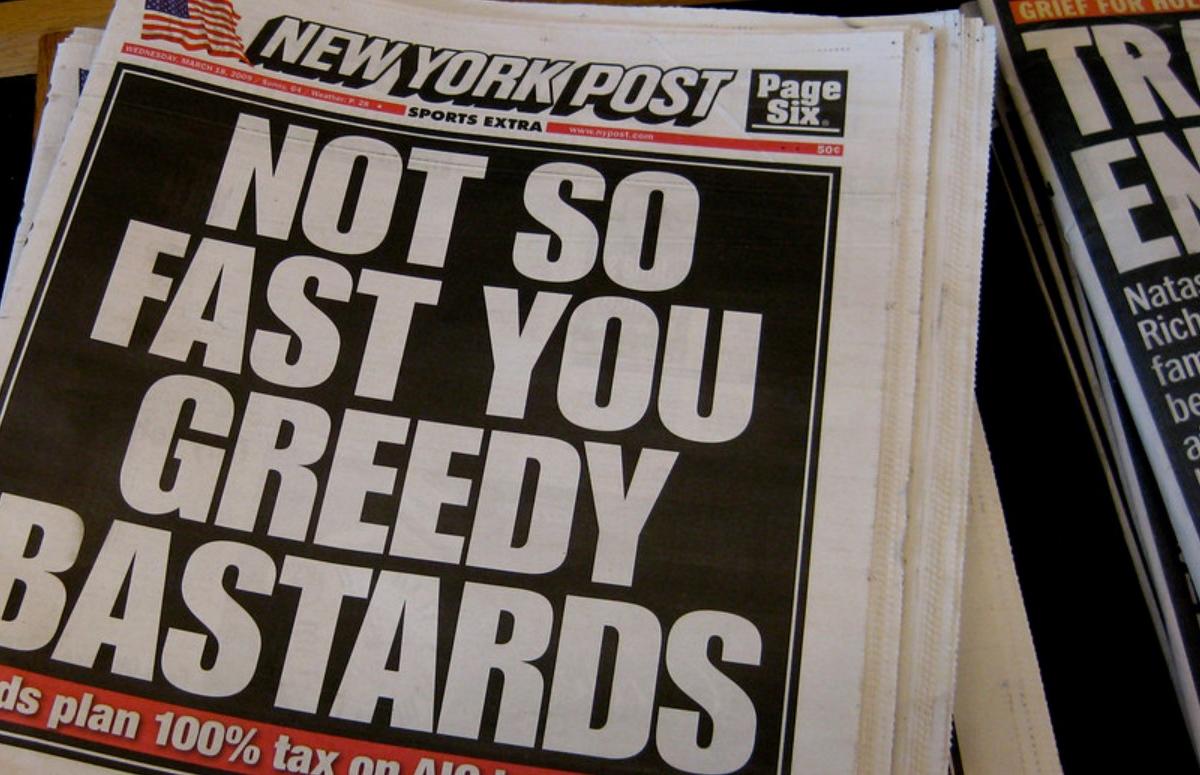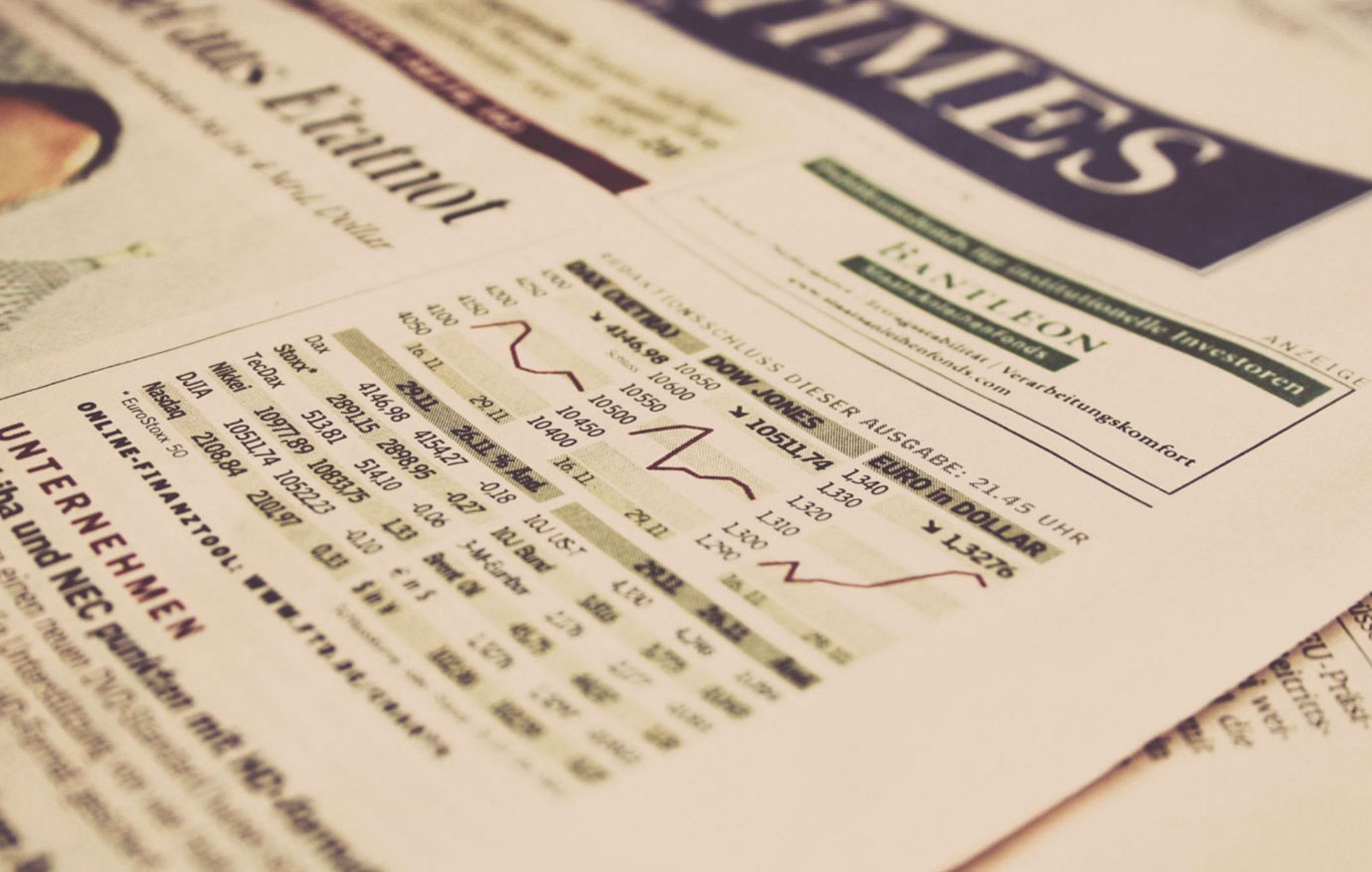
In the Culture War, Conservatives Turn against Wall Street
In late January and early February, protestors took to the streets of lower Manhattan to “re-occupy Wall Street.” Protestors were there to draw attention to the efforts by Wall Street elites to use their political influence with Congress and the SEC (Securities and Exchange Commission) to crush the traders—many of whom had rallied around certain groups within Reddit—who had embarrassed hedge funders and cost them billions through the now infamous GameStop short squeeze.
Except in this version of “Occupy Wall Street” Republicans and conservatives are the chief participants. As reported by the New York Post:
Dozens of members of the New York Young Republicans Club jumped on the anti-Wall Street bandwagon Sunday, gathering in Manhattan’s Zuccotti Park to blast the hedge-fund managers targeting GameStop.
The “Re-Occupy Wall Street” protesters ripped the big-money investors as “despicable” for moving to stop last week’s “little guy” Reddit-fueled run on the video-game-seller’s stock to shore it up after the money men bet on it tanking.
“There’s some blatant corruption going on in the buildings around us and in Greenwich, [Ct.], wherever [the] hell they are,” Gavin Wax, the group’s president, told about 50 protesters.
Why are feelings running so high among conservatives over what at first appears to be a matter of arcane financial maneuvering? The answer is the conservatives’ culture war now includes Wall Street. From the conservative populist perspective, the enemies in the culture war have long been Washington politicians, government employees (with an exemption for military and police personnel), Hollywood, and big media.
But now it appears Wall Street is quickly taking its place among the populists’ list of targets. This isn’t just some mere disagreement over policy. It’s a shift that is likely to be more meaningful and longer lasting precisely because it is now perceived to be cultural in nature. Wall Street is increasingly seen by conservatives as part of the elite establishment. After countless bailouts and easy money schemes designed to help the financial class, many conservatives are suspecting these bailed-out ersatz capitalists aren’t the good guys after all.
Changing Perceptions of Wall Street
The old perception of Wall Street as a haven for innocuous—or maybe even heroic—entrepreneurs and innovators is rapidly fading. In past decades, one might still often see conservatives hold up Wall Street investors from popular culture—say, Gordon Gecko and his “Greed Is Good” speech—as free-thinking renegades who bucked Beltway thinking. Those days are gone.
This image has been replaced with a view of Wall Street as a bunch of establishment lackeys who enable Silicon Valley in its war on unpopular opinions and as welfare queens who exploit the taxpayers for endless bailouts and government favors.
In late January, for example, Rush Limbaugh responded to Washington’s calls for an investigation into small GameStop investors, essentially placing Wall Street in the same category as “the Deep State”:
Folks, it’s not just political now. The elites are bent out of shape that a bunch of average, ordinary users have figured out how to make themselves billionaires….I’ve been studying it all morning and the best thing I can tell you is…whatever you think is going on in politics, Washington establishment, the Deep State, what have you, it’s the same thing in finance.
Limbaugh concluded that there are “intended winners” on Wall Street—the hedge funds and their billionaire friends. But if any ordinary people figure out how to “game the system” the way that Wall Street insiders have long done, well, then the elites are “gonna destroy you.”
In other words, when it comes to Wall Street, it’s now the little guy versus the billionaires. It’s “regular America” versus Wall Street, the deep state, Silicon Valley, and the Washington establishment.
This is a pretty clear declaration of war on a group of people who were once viewed by most conservatives as the good guys.
The Establishment Joins Ranks against the Populists
But now the tables have been turned, and, predictably, the proestablishment mouthpieces have taken the side of the wealthy elites. Jeff Bezos’s Washington Post abandoned decades of trashing the wealthy in order to declare the hedge funds the “good guys in the GameStop story.” Their reasoning was the usual antipopulist fare: wealthy hedge funders are reasonable, well-informed pillars of the community. Those populists are irrational boobs. The Wall Street Journal, meanwhile, profiled a hedge funder at the core of the GameStop controversy, implying that the fabulously wealthy Wall Street insider was a victim in the whole affair. Another article at the Post strongly suggested that the Reddit investors were engaging in an illegal “pump and dump” scheme.
But at this point attempts to declare hedge funds as unappreciated heroes, and the Redditors as sinister scammers, is likely to only harden the populist zeitgeist moving against Wall Street. Attempts to condemn anti–hedge fund populists as unsophisticated small-town hayseeds are all too reminiscent of Barack Obama’s declaration that Middle American people are “bitter” and “cling to their guns and religion.”
Rather, these conservative populists—who may or may not be religious or fond of guns—are likely to conclude, as Limbaugh did, that Wall Street sophisticates have one set of rules for themselves and another set of rules for everyone else.
Moreover, attempts at the Post and the WSJ to defend Wall Street largely miss the point. It is, of course, completely true that there’s nothing wrong with short selling, so there’s not necessarily anything wrong with what the hedge funds had planned for GameStop. It’s also true that there’s nothing wrong with being rich, so long as one comes by the money honestly. The core of the new conservative populist critique lies elsewhere. It lies in the fact that these populists are increasingly coming to the realization that Wall Street’s wealth is not, in fact, honestly acquired, and that after decades of bailouts and easy money designed to keep Wall Street firms swimming in cash, maybe “the little guy” has gotten the short end of the stick. The populists may have also noted that Wall Street donors as a whole clearly sided with Joe Biden over Trump during the 2020 campaign.
When populists see billionaire Leon Cooperman, for example—who has advocated for Wall Street bailouts in the past—go on CNBC to denounce ordinary taxpayers who “are getting their checks from the government,” this only drives home the perception that Wall Street is showered with freebies from the Fed and the US Treasury, while everyone else gets scraps from the Big Boys’ table.
This is no longer about a debate over some minor aspect of economic theory, or the right tax rate, or how the Washington establishment wants to punish the rich. For conservative populists, Wall Street is now a combatant in the culture war. Wall Street is no longer a victim of the Washington establishment. Wall Street now is the Washington establishment, indistinguishable from the oligarchs of Silicon Valley; Washington, DC; and the New York Times. It will take more than a few columns explaining the value of short selling to undo the damage done.



